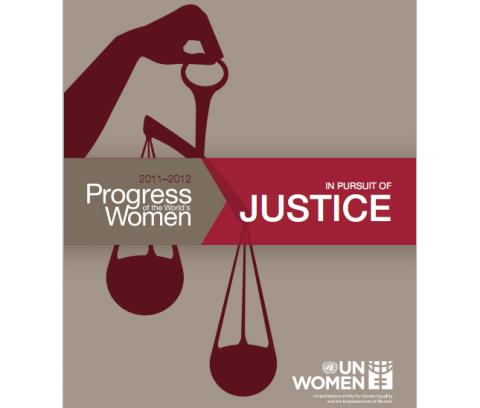Justice and equality for women progressing slowly

A new report from the agency UN Women shows that there is still a huge gap between the legal guarantees of rights afforded to women and their everyday lives. Prefacing the report, its authors write: “This volume of Progress of the World’s Women starts with a paradox: the past century has seen a transformation in women’s legal rights, with countries in every region expanding the scope of women’s legal entitlements. Nevertheless for most of the world’s women, the laws that exist on paper do not translate to equality and justice.”
They describe guarantees on the equality of men and women, enshrined in the constitutions of 139 countries and territories around the world, as “hollow promises” because of inadequate laws and implementation gaps. They say that, “In rich and poor countries alike, the infrastructure of justice – the police, the courts and the judiciary – is failing women, which manifests itself in poor services and hostile attitudes from the very people whose duty it is to meet women’s rights.”
As an example of this failure, they point out that despite 117 countries having equal pay laws, women in every sector and region are paid between 10 and 30% less than men. More than half of the world’s working women are in vulnerable employment, often outside the purview of labour legislation.
Also indicative of failings in the justice infrastructure are the low reporting and conviction rates for rape. In England and Wales only 20% of reported rapes are referred for trial; the conviction rate is just over 5%. Across 57 countries, on average 10% of women say they have experienced sexual assault, but of these only 11% reported it. This compares to a similar incidence of robbery, on average 8%, but a reporting rate of 38%. 127 countries do not explicitly criminalise rape within marriage.
The report suggests practical measures to advance women’s rights. For example, increased numbers of female police officers correlates with increased reporting of sexual assault; while those countries - such as Spain, Rwanda and Costa Rica - that have introduced gender quotas in politics to increase female participation have seen the introduction of progressive laws on land rights, violence against women, healthcare, and employment. Non-transferable ‘daddy months’ in Sweden have increased the uptake of paternity leave, helping to address the gender pay gap.
Governments, according to the report, must take responsibility for the impact of equality legislation: “While at least 115 countries recognise women’s equal rights to property, discriminatory laws on inheritance and failures of implementation mean that women cannot claim what is rightfully theirs. Equal pay is unlikely to be achieved without action to redistribute women’s unpaid care burdens.”
Writing in the Guardian, executive director of UN Women Michelle Bachelet described the report as “a call for action”, saying, “It outlines an agenda that, by ensuring laws and the legal system tackle bias against women, will accelerate the progress towards our ambitions for a better world.”
